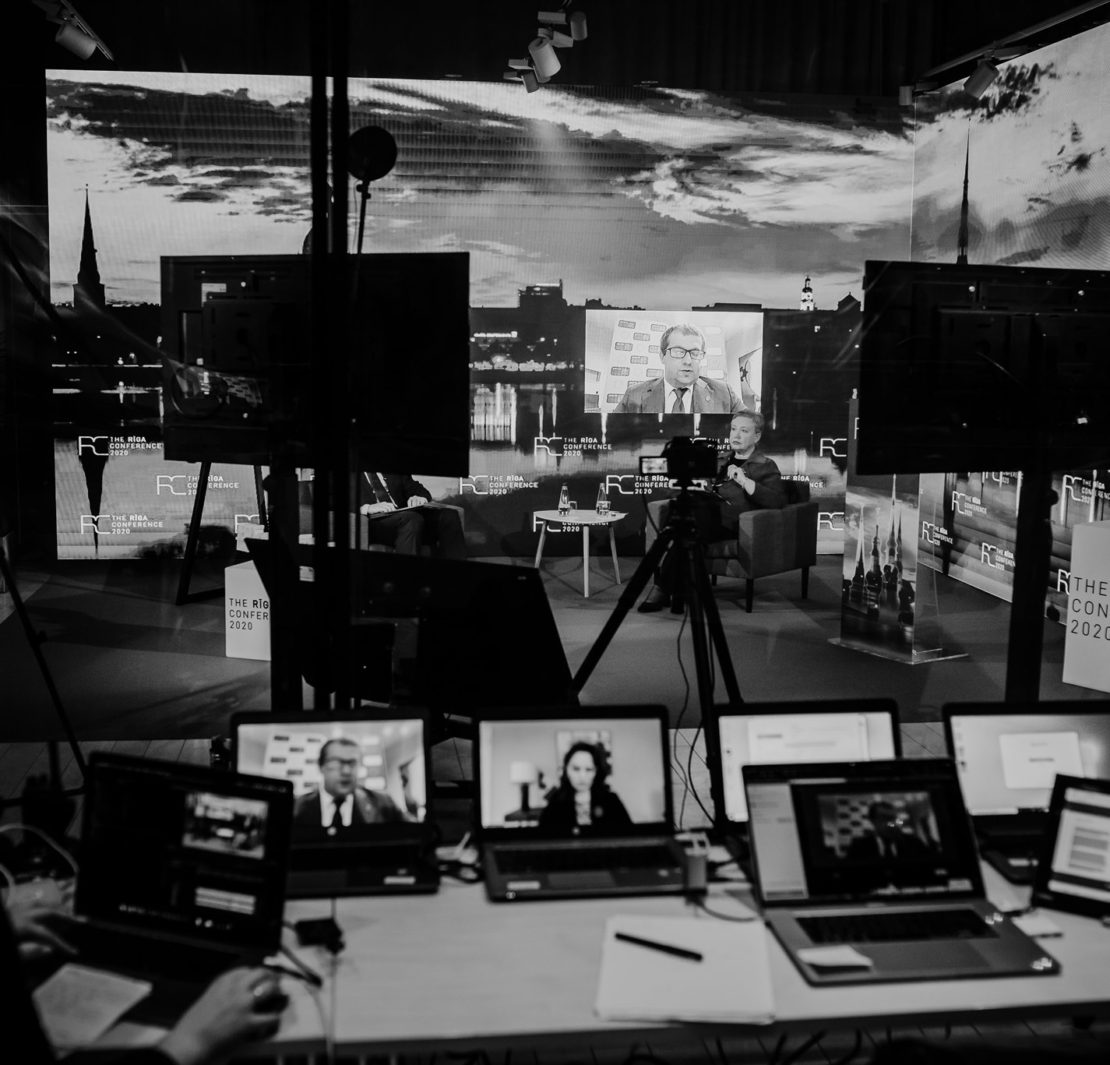Panel Participants:
Dr. Kori Schake, Director of Foreign and Defence Policy Studies at the American Enterprise Institute
Prof. Liu Chunrong, Executive Vice Director of the Fudan- European Centre for China Studies
Brig Gen (Retd.) Robert Spalding, Senior Fellow at the Hudson Institute
Dr. Patrick Keller, Vice President of the Federal Academy for Security Policy
Moderator:
Dr. Sandis Šrāders, Fellow in Russian Strategic and Military Studies at the Baltic Defence College
The discussion was initiated by the moderator noting that this years epidemic has added additional fuel to propel the already changing global landscape. Some players see this as a year of immense weakness for the US – internal divisions and challenges to its democratic structures were peaking, especially during the elections. It seems like the US is turning inwards to mend itself, and deal with the consequences of the pandemic and perhaps stabilize the under the incoming administration. It remains to be seen how this affects the global order, and how the setting changes, especially among the trio of the US, European Union, and China – all of which have interlinked interests.
The first discussant took the position that the US has damaged its reputation again during the pandemic, but it should not have too much of an impact on the global order, as China has also note done a great job with its handling of the crisis. The more telling factor will be to what extent the crisis impacts the economies of countries in the transatlantic alliance and to what extent nations are able to support each other. There is ample space for China, which is already the worlds biggest creditor to become even more important in that regard, especially in the context of the Belt and Road Initiative.
Another discussant commented that two main variables will affect the change of the global order. First, are the domestic internal factors. In the US there has been a shrinking of the middle class and a polarization, as well as the rise of identity politics. Though the new presidency may reconfigure these changes, the problems may already be too structurally entrenched. Conversely, in China there has been a very strong and visible recentralization and internal political capital for leadership is increasing, allowing it the energy and resources to take on a stronger role externally. The second is the third party effect, in which the European Union can have a powerful role as an influencer. Together with regional actors like Japan and Russia, the great powers can still be swayed towards taking more or less confrontational stances and embracing multilateralism.
The next discussant brought back the issue of economic displacement in the US and other western economies, especially with regards to manufacturing and other industries. As the introduction of 4G internet continues turning societies into information economies, and four large western tech giants hold 25% of Standard and Poor’s 500, fundamental changes in the makeup of economies are underway. China has already mastered these technologies and embraced the centralization of personal data, which gives them significant – but hard to calculate – advantages over the west, which is slower on uptake due to an interest in upholding liberal democratic values and principles of data protection. The issue here is that the data amassed by China can be used against the transatlantic alliance to predict and perhaps even impact our behavior. These are threats the western alliance must immediately prioritize to ensure a critical threshold has not been missed.
Discussants agreed that positions on China in the west are becoming more hawkish, and that the European allies are at least sure to side with the US position, as exemplified by similar efforts across the board against the Huawei 5G proliferation. The difficulty going forward will be in being able to accept and become part of an order that does not follow the rule-based paradigm of the past half a century. China, and Russia have highlighted a lack of willingness to abide by the rules of the multilateral system, and that leaves the west at a disadvantage.
The discussion concluded with several strong stances. Most importantly, the European Union cannot afford to remain neutral, and it must take a side going forward. There is no equidistance for Europe between Washington and China – the European Union will have to join efforts with the US to ensure the stability under the current order, with all the benefits of the international order remain intact. Decoupling from the US and the transatlantic alliance is more likely to ultimately reduce the power of each power to negotiate internationally. To this end, high level meetings between European Union and US leadership should be a priority, especially to begin consolidating other allies beyond the transatlantic.

